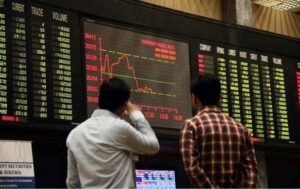Less than a week after JAMA Network Open published a small study showing zinc and vitamin C were not associated with improved mild COVID-19 infections, a 240-person JAMA study also found that a single dose of vitamin D did not have any significant effect on moderate to severe COVID-19 infections.
The study, published by Igor Murai, PhD, a Sao Paul rheumatologist, and colleagues, reported that hospital stay was a median 7.0 days for both those in the intervention and the placebo group, and while there were differences up to 8.4 percentage points across in-hospital mortality, intensive care unit (ICU) admission, and mechanical ventilation needs, they were all statistically not significant, Medical Daily reported .
“When this clinical trial is taken in isolation, the findings may appear ambiguous; that is, the findings do not exclude clinically important benefit (or harm) from high-dose vitamin D3 administration in hospitalized patients with moderate to severe COVID-19,” US clinicians David Leaf, MD, MMSc, and Adit Ginde, MD, MPH, write in a related JAMA commentary.
“However, taken together with existing randomized clinical trials of vitamin D administration in hospitalized patients with respiratory infection and critical illness, the results do not support routine administration of vitamin D in hospitalized patients with moderate to severe COVID-19.”
The researchers recruited adult patients in Sao Paulo who were hospitalized with COVID-19 but did not require mechanical ventilation or ICU admittance at the time of enrollment. From Jun 2 to Aug 27, 2020, half of the 240 patients were randomly assigned a single dose of 200,000 international units (IU) of 25-hydroxyvitamin D (25[OH]D) in addition to the standard of care, and the other half were assigned a placebo. Three people were excluded from the final results because they withdrew consent.
Before vitamin D doses were administered, patients’ average vitamin D level was 21.2 nanograms per milliliter (ng/mL) in the intervention group and 20.6 ng/mL in the placebo group—20 ng/mL is considered healthy. And only about a quarter of all participants had a severe deficiency (less than 12 ng/mL). While 25(OH)D levels significantly increased to an average of 44.4 ng/mL in the vitamin D group, Leaf and Ginde point out that this does not measure how much the body was actually able to convert.
In the JAMA commentary, Leaf and Ginde say that, although the results seem to show vitamin D’s insignificance for COVID-19 treatment and is the largest randomized, double-blind, placebo-controlled trial assessing the vitamin published so far, the study had noteworthy design limits, including being underpowered.
“With 208 participants they would have 80% power to detect a 50% difference in hospital length of stay, which is a highly improbable result,” they write.
Additionally, they write, not only does the study’s focus on moderate to severe patients limit its generalization, but other COVID anti-inflammatory studies have had results highly dependent on the severity of the illness. The lack of vitamin D deficiency could also have had an impact on the results.

Sam Irfan believes in the power of clear, straightforward writing. His blog posts tackle everyday topics with relatable insights and easy-to-follow advice. With a conversational style, he makes complex subjects feel understandable. He’s dedicated to sharing knowledge and empowering readers to take action. Find his latest posts on trending in social.











